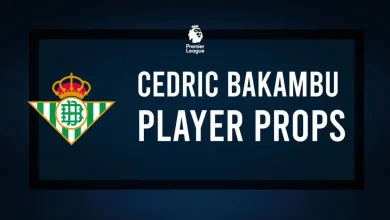How Bournemouth sold £200m of talent and still improved

Because Bournemouth had done so much planning, and had decided who they were prepared to sell, it meant they were also able to reject late approaches from Everton and West Ham for Marcus Tavernier, an £8m bid from Crystal Palace for David Brooks and Bayer Leverkusen floating a £26m deal for Justin Kluivert which would also have been rejected out of hand.
All three players are vital to Iraola’s plans, with Tavernier – a huge influence on the squad – and Brooks being rewarded with improved contracts while Kluivert’s deal runs until 2028. The 26-year-old has just changed representatives, going with the super-agent Ali Barat, which often signals an eventual move.
Bournemouth ended last season expecting Huijsen, who had a £50m release clause, and Liverpool-bound Kerkez to leave. They also knew Kepa Arrizabalaga, after a loan from Chelsea, did not want to stay despite them offering a permanent deal. He decided to be David Raya’s understudy at Arsenal.
But the planning was already in place to handle all that. Julio Soler, a 20-year-old Argentinian, had been signed in January but, crucially, the club had also opened talks that month to bring in Adrien Truffert who appears to be another example of Bournemouth’s shrewd recruitment.
The Belgian-born left-back signed for £14.4m from Rennes and has slotted in seamlessly, playing every minute in the league. At 23, he is also the ideal age to be in the first team and was just below the radar for bigger clubs, but with the potential to play for them eventually. Bournemouth had their ready-made Kerkez replacement.
Similarly Huijsen may not have played as much last season had Marcos Senesi not been injured but, when he did, he was simply too good to keep with every major European club after him. The release clause meant Bournemouth had to accept the 20-year-old would go but agreeing to it helped them sign him from Juventus in the first place.
No panic, trust the plan
Bournemouth had lined up another young centre-half, Veljko Milosavljevic, a Serbian signed for £13m from Red Star Belgrade with huge potential. So, with Senesi fit and James Hill as back-up, all seemed sorted – until PSG came in for Zabarnyi. That was a gold-plated spanner in the works.
For Bournemouth, it was not about the money for the 23-year-old Ukrainian international – even if a fee of £57m was a healthy return having paid £24m for him in January 2023 – it was more about how could they deny him a move to the European champions?
Still they tried to keep him before reluctantly agreeing to sell which led to some consternation that the club had gone too far with even Iraola declaring “we are not where we want to be” in terms of transfers.
But again there was a plan in place. There would be no panic buy. Talks had started in April with Bafodé Diakité, a centre-back with Lille in France. The problem was strong competition from Sunderland which pushed up the bidding. And with all Premier League clubs using similar data, tracking similar players and having financial muscle, the transfer market is fierce. Which is where Bournemouth’s unique selling point comes in.
They eventually paid £34.6m for 24-year-old Diakité, more than they anticipated, but that was more than compensated for by the Zabarnyi deal. And Diakité has been impressive. In the end, it was a case of planning and reacting to the market.
The same happened with Ouattara with the 23-year-old winger agitating to leave and Bournemouth agreeing he could go if there was that £40m bid. They did not expect a club to offer that but had lined up two deals: the Moroccan Amine Adli, beating off Palace to sign him, for an initial £18.25m from Bayer Leverkusen and Liverpool’s highly-rated Ben Gannon-Doak for £25m.




